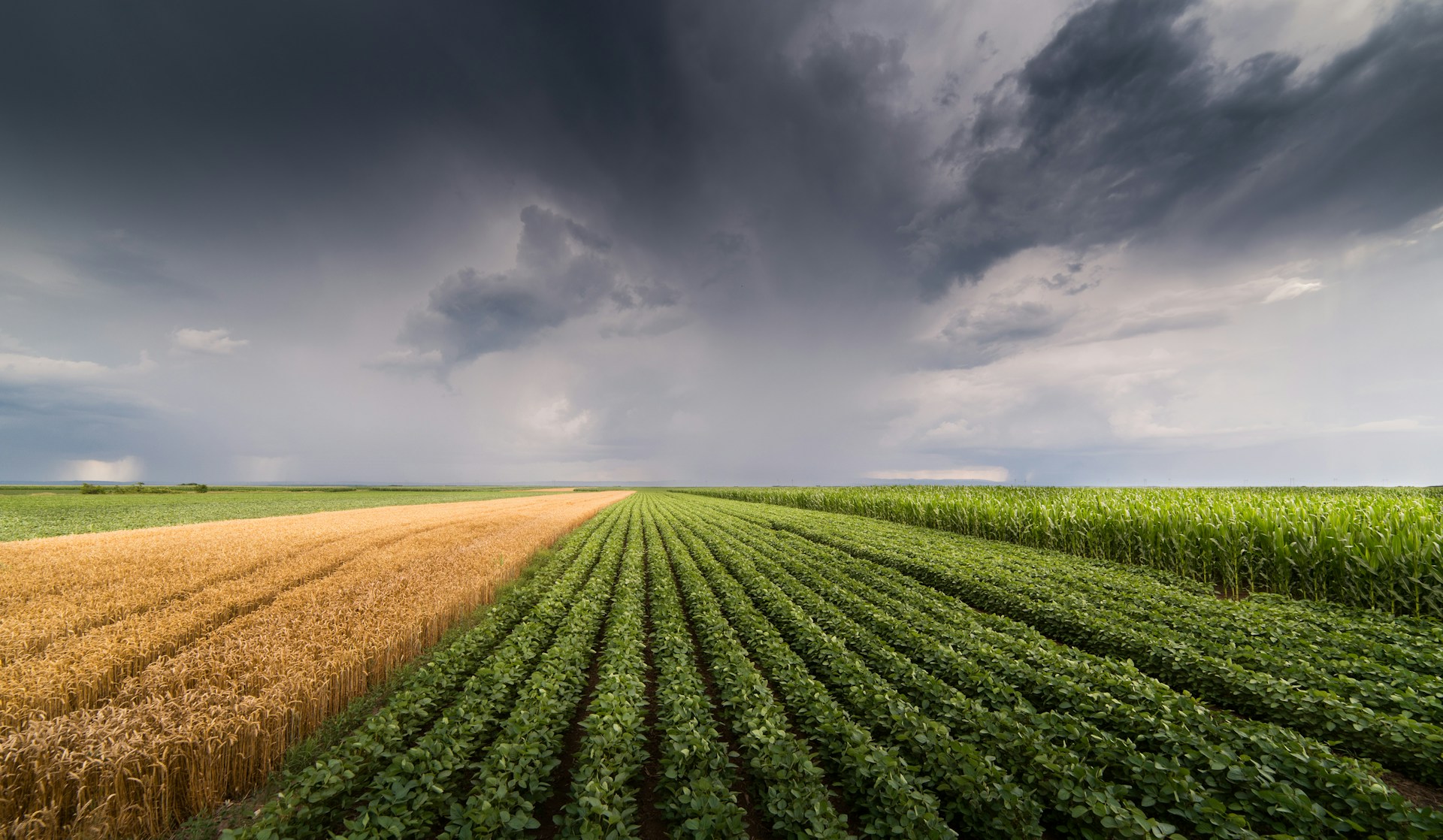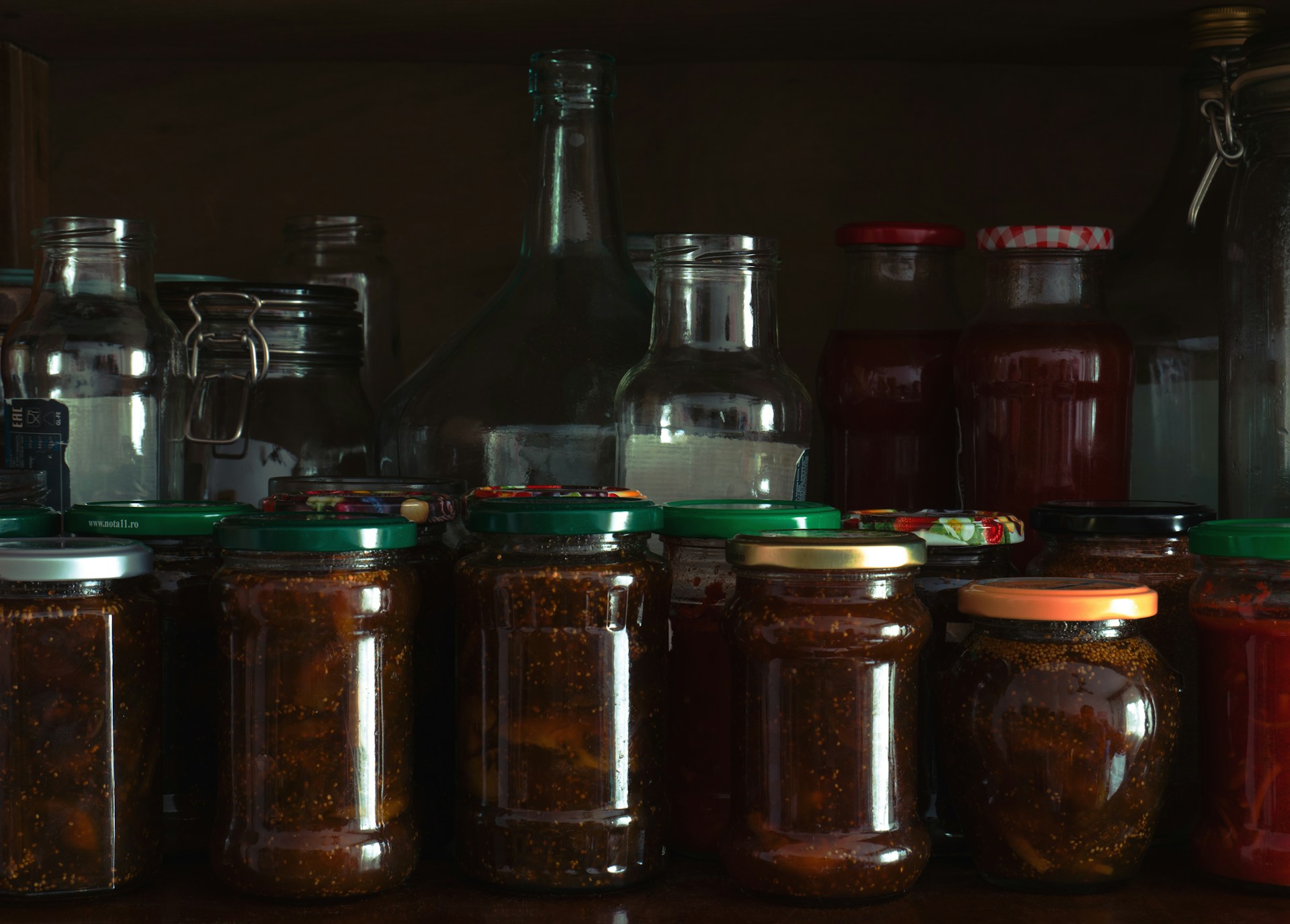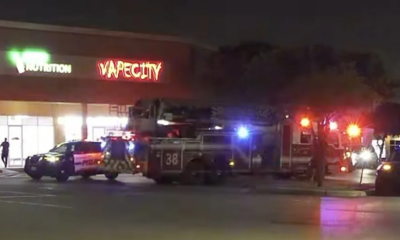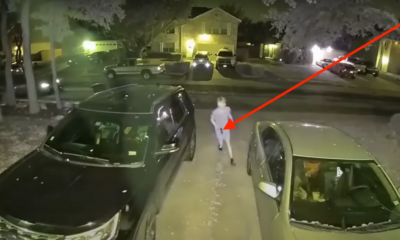Preparedness
Rep. Spartz’s Accidental Carry- Unloaded firearm slips past airport security

In a recent incident, Rep. Victoria Spartz (R-Ind.) unwittingly carried an unloaded firearm in her luggage while going through airport security, as indicated by her office’s statement. This incident underscored the often contentious discussions surrounding Americans’ Second Amendment rights.
“Last Friday, Rep. Spartz accidentally carried an empty handgun in her suitcase with no magazine or bullets, which she did not realize was in the pocket of her suitcase, while going through security at Dulles airport. Rep. Spartz was issued a citation and proceeded on her international flight to the OSCE PA meeting in Europe,” as per the information from her office.
Despite the mishap, Spartz remains a strong advocate for gun rights, asserting, ‘I will always stand strong for 2nd Amendment rights for all law-abiding Americans!’
The Transportation Security Administration (TSA) has confirmed the incident. According to a representative, “TSA officers at IAD detected a .380 caliber firearm during passenger security screening. The firearm was unloaded and in the individual’s carry-on bag.”
Furthermore, a spokesperson from the Metropolitan Washington Airports Authority informed Axios that “Victoria Spartz, 45, of Noblesville, IN, was charged on Friday, June 28 with a weapons violation at Dulles Airport.”
Spartz has an interesting background; she is an immigrant who grew up under an oppressive regime in Ukraine and has been serving in Congress since 2021. This background may explain her strong advocacy for the Second Amendment. She recently tweeted, “As someone who grew up under tyranny, I understand that our 2nd Amendment is second for a reason – to protect all other rights. I will always stand strong for 2nd Amendment rights for all law-abiding Americans!”
Interestingly, after initially announcing that she would not run for office in 2024, Spartz reversed her decision and successfully won her Republican primary in Indiana’s 5th Congressional District earlier this year.
This incident may also reignite debates surrounding the TSA’s role and efficacy. GOP Sen. Mike Lee of Utah, for instance, has previously suggested that the TSA should be dismantled, arguing, “It’s time to abolish the TSA. Airlines can and will secure their own planes if a federal agency doesn’t do it for them. They’ll do it better than TSA, without undermining the Constitution and with less groping—showing more respect for passengers.”
This incident serves as a reminder of the ongoing debates around gun rights and airport security in the United States. As our society grapples with these complex issues, it will be interesting to see if this incident sparks any substantial changes or simply adds to the ongoing dialogue.
Let us know what you think, please share your thoughts in the comments below.

Preparedness
Shield Your Crops from Heavy Rains with These Tactics

As spring and summer approach, so do the heavy rains that can threaten the crops we depend on. These downpours can result in waterlogging, soil erosion, and plant diseases, making it crucial to employ strategies for safeguarding crops from such weather.
The key to ensuring crop survival and productivity lies in effective protection methods.
One of the most fundamental steps in crop protection is establishing a proper drainage system. Without it, even the most well-covered crops can suffer. “You can cover and protect your crops as much as you’d like, but if you don’t have adequate drainage, you may do a lot of work for nothing.”
A well-maintained drainage system ensures that water flows freely and helps prevent soil erosion. Simple measures, like digging canals or channels, can direct excess water away from your garden.
For those in regions prone to heavy rainfall, installing an underground drainage system can be beneficial. This setup helps remove excess water from the soil, preventing waterlogging and its detrimental effects on plant roots.
The condition of the soil is another critical aspect to consider. Waterlogged soil can reduce oxygen levels, leading to root rot and stunted growth. Preparing fields before planting to ensure proper drainage and aeration can make a significant difference.
Mulching is another effective method to combat heavy rains. By covering the soil, mulch reduces erosion and prevents rainwater from washing away valuable soil particles.
In addition to drainage and soil preparation, rain covers offer a direct way to shield crops from excessive water. These covers should be durable and tear-resistant to withstand both heavy rain and wind.
Row covers, made from materials like polypropylene or polyethylene, are lightweight and breathable. They allow water and air to pass through while keeping insects and pests at bay. Row covers are particularly useful for protecting delicate crops like lettuce and spinach.
Moreover, row covers can safeguard young seedlings from harsh weather conditions. They are easy to install and can be removed once the weather improves.
Tarps provide another layer of protection for gardens. Constructed from durable materials such as canvas or vinyl, tarps create a temporary shelter against rain and wind. To prevent them from blowing away during storms, it’s essential to anchor tarps securely with stakes or weights.
Plastic sheeting is a cost-effective solution for crop protection. It can serve as a temporary greenhouse or cover for garden beds. When using plastic sheeting, ensure it’s securely anchored and ventilated to prevent moisture buildup.
Be cautious not to use overly thick plastic, as it can trap heat, causing plants to overheat and dry out. Proper ventilation is key to maintaining a healthy environment for your crops.
By implementing these strategies, homesteaders can effectively protect their crops from the challenges posed by heavy rains, ensuring a bountiful harvest.
Let us know what you think, please share your thoughts in the comments below.
Preparedness
Master Your Digital Privacy with These Essential Security Tips

Navigating the digital landscape requires a blend of awareness and action to safeguard your privacy and security. Just as you wouldn’t welcome a stranger peering through your window, you shouldn’t allow digital intrusions into your personal data. Protecting yourself online involves understanding and addressing four key areas: local device security, the potential misuse of smart devices, cloud data management, and secure data transmission.
Your local devices, such as phones and computers, are treasure troves of personal data. It’s crucial to secure these devices against unauthorized access. Similarly, devices like smart doorbells and virtual assistants can be exploited if not properly managed. Your data stored in the cloud, like email accounts or financial information, is another critical area, as it resides on servers beyond your direct control. Lastly, the connections that transfer data between your devices and the internet are vulnerable to interception.
To enhance your online security, consider utilizing tools developed by organizations like the Electronic Frontier Foundation (EFF), which offers resources such as the Privacy Badger browser extension. Supporting these organizations through donations can help them continue their vital work.
A fundamental concept to grasp is that the cloud consists of computers you don’t own. When you sync a photo from your phone to services like Google Photos or iCloud, it exists both on your device and on the service provider’s servers. While the cloud is integral to modern conveniences, it’s important to use it wisely.
When it comes to communication, avoid using SMS, an outdated and insecure texting protocol. Instead, opt for encrypted messaging apps like Signal, which Edward Snowden recommends as the best in its class. Signal offers encrypted messaging, voice, and video calls, ensuring your conversations remain private.
Physical security measures, such as camera covers and microphone blockers, can protect against unwanted surveillance. Look for devices with physical kill switches that cut power to cameras and microphones, ensuring they can’t be activated without your consent.
For web browsing, choose privacy-focused browsers like Brave, which respect user privacy while offering familiar features. Many browsers now include privacy settings, such as “do not track” options, to enhance security.
Email services also play a crucial role in privacy. Unlike Gmail, services like Proton Mail prioritize user privacy and are less likely to cooperate with government surveillance. Proton Mail encrypts emails and is based in Switzerland, offering a higher level of protection.
A strong password strategy is essential. Use complex, unique passwords for each account to prevent hackers from exploiting your credentials across multiple platforms. Password managers can help you generate and store these passwords securely.
Virtual Private Networks (VPNs) offer another layer of security by encrypting your internet traffic and masking your online activities. However, choose a reputable VPN service that doesn’t log user data and is based in a privacy-friendly jurisdiction.
Two-factor authentication (2FA) adds an extra security layer by requiring a second verification step, such as a code sent to your phone. This makes it harder for unauthorized users to access your accounts, even if they have your password.
Finally, encrypting local files on your devices ensures that even if someone gains physical access, they can’t easily read your data. Many devices now include encryption features that operate seamlessly in the background.
In conclusion, staying secure online requires a proactive approach and a combination of tools and practices. By understanding how digital systems work and making informed decisions, you can better protect your personal information in an increasingly connected world.
Let us know what you think, please share your thoughts in the comments below.
Preparedness
Master Your Harvest: Essential Tips for Preserving Summer Bounty

When your summer garden is bursting with more produce than you can consume, it’s crucial to have a strategy to preserve your bounty. The simultaneous ripening of tomatoes, the accumulation of cucumbers, and the rapid bolting of herbs in the heat can lead to a surplus that, if not properly stored, will lose its flavor or eventually spoil. Without effective preservation, your hard-earned harvest becomes waste.
Preserving your summer harvest allows you to extend the enjoyment of your produce into the fall and winter months. This article explores three essential preservation methods: canning, freezing, and drying, each with straightforward steps and safety tips for beginners.
Summer is a season of abundance on the homestead, but this bounty is fleeting. Fresh produce is particularly susceptible to spoilage in hot or humid conditions. Without proper storage techniques, the fruits of your labor can quickly vanish.
Preservation not only reduces waste but also has several other benefits. It minimizes trips to the store during colder months, gives you control over the ingredients and quality of your food, and enhances food security using resources already available in your soil.
Each preservation method is best suited for different types of produce. Even if you’re new to these techniques, you can start with one and expand your skills over time. Canning provides pantry staples, freezing maintains flavor and texture, and drying requires minimal space while keeping herbs ready for use throughout the year.
Canning is an excellent way to store produce for a year or more. This method uses heat to create a vacuum seal in jars, preventing the growth of bacteria and mold. There are two safe canning methods: water bath canning for acidic foods and pressure canning for low-acid vegetables.
“Best for: jams, jellies, fruit preserves, pickles, tomatoes (with added acid).”
To begin canning, wash jars and lids, keeping jars warm until filled. After processing, remove jars and allow them to cool for 12 to 24 hours. For tested recipes and guidance, visit the National Center for Home Food Preservation.
Certain vegetables, like green beans, corn, and carrots, are too low in acid to be safely processed in a boiling water bath. Pressure canning uses higher heat to safely preserve these foods for long-term storage.
“Load jars into the canner and lock the lid. Bring to the correct pressure and start timing. Allow pressure to return to zero before opening.”
Freezing is a quick and flexible method for preserving most produce, maintaining food close to its original flavor and texture. However, many vegetables need blanching first to halt enzymes that cause spoilage.
“Blanch vegetables in boiling water for 1 to 4 minutes. Transfer to an ice bath. Drain and dry completely. Label with date and freeze flat to save space.”
Drying removes moisture to prevent spoilage and is particularly effective for herbs, sliced fruit, and thin vegetables like tomatoes or peppers.
“Dry at 125 to 135°F until brittle or leathery. Keep dried food in sealed containers away from light.”
Choosing the appropriate preservation method depends on the specific fruits and vegetables you have. Some require heat to stay safe, while others are best when frozen or dried. A quick reference chart can help match your produce with the best method, necessary tools, and typical shelf life.
Preserving your summer harvest requires patience and planning, but it rewards you every time you reach for a jar of home-canned sauce or a handful of dried herbs. These preserved foods offer more than just flavor; they embody value, effort, and security.
The habits you establish now will benefit you throughout the year. The more you store, the less you need from external sources, marking genuine progress on the homestead.
“What’s your favorite way to store your harvest? Drop your tips or go-to recipes in the comments below.”
Let us know what you think, please share your thoughts in the comments below.
-

 Tactical1 year ago
Tactical1 year ago70-Year-Old Fends Off Intruder with Lead-Powered Message
-

 Tactical1 year ago
Tactical1 year agoVape Shop Employee Confronts Armed Crooks, Sends Them Running
-

 Preparedness12 months ago
Preparedness12 months agoEx-Ballerina’s Guilty Verdict Sends Tremors Through Gun-Owner Community
-

 Preparedness10 months ago
Preparedness10 months agoGood Samaritan Saves Trooper in Harrowing Interstate Confrontation
-

 Tactical1 year ago
Tactical1 year agoMidnight SUV Theft Interrupted by Armed Homeowner’s Retaliation
-

 Survival Stories2 years ago
Survival Stories2 years agoEmily’s 30-Day Experience of Being Stranded on a Desert Island
-

 Preparedness10 months ago
Preparedness10 months agoArizona Engineer’s Headless Body Found in Desert: Friend Charged
-

 Preparedness10 months ago
Preparedness10 months agoBoy Saves Dad from Bear Attack with One Perfect Shot
Frederick Huntowski
July 11, 2024 at 11:24 am
The poll questions are poorly framed. Lawmakers should have no more, or less rights than all citizens. What is good for the goose is good for the gander. As lawmakers, equal rights under law should be their focus for all!
Richard Escovedo
July 11, 2024 at 12:09 pm
Lawmakers always have a target on themselves and should be able to protect themselves and their families.
William Calvert
July 11, 2024 at 12:24 pm
All competent citizens should be allowed to carry firearms as they see fit. It is a constitutional right that our founding fathers wanted to protect a citizen from daily harm to unjust government.
Anonymous
July 11, 2024 at 12:55 pm
When I try to post a comment I get a message saying that I have posted a similar comment before. This isn’t true since I haven’t posted a comment on this story or any other story. Is this one of the ways the media and the government control what they want the world to see what they want the world to see?
Jim gilmore
July 11, 2024 at 12:58 pm
Just wining a election is not enough to be armed on aircraft!
DAN DUFFY
July 11, 2024 at 1:42 pm
I believe in the 2nd Amendment and the right to bear arms.
I have my concealed carry license.
Robert Hoyt
July 11, 2024 at 1:51 pm
Law enforcement abd licensed individuals are the only people that should be allowed to carry firearms. Lawmakers make the law,not uphold it.
John Jones
July 11, 2024 at 4:41 pm
Government personnel that are not law enforcement or licensed security personnel,should only be allowed to carry firearms and other weapons in the same manner and places as regular US citizens are. This applies to elected officials as well.
Lon
July 11, 2024 at 5:02 pm
I believe they should be made to follow ALL of the same laws they impose upon the citizens they represent. No Exceptions Period.
Flashfly69
July 11, 2024 at 8:49 pm
Politicians should be treated exactly like ordinary citizens. And those who are felons should never be allowed to carry.
Robert Getty
July 11, 2024 at 9:57 pm
I trust do one any more cops are the #1 crooks and are being killed on their phony egos and lack of training Ca and Fl are 2 bad states -Tx is the good guys -NY is trash DA’s and George Soros dupes -he should be hanged-now
Abe Fromm
July 15, 2024 at 11:22 am
Lawmakers should not be above the law. There is a process in place that allows licensed individuals to check in firearms at the airport. Why can’t lawmakers follow these same rules?